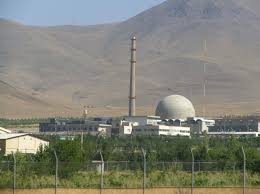The “Kosel Controversy” – whether “nontraditional” prayer services should be accommodated at the Kosel Maaravi – blazes on, fanned by the winds of politics, courts and “activists.”
Respect for the Jewish mesorah at the site has characterized tefillah there since Yerushalayim’s liberation from Jordan in 1967. What underlies the desire of some to diminish that respect? I think it’s something that emerged from a conversation I recently had with a nine-year-old.
I had scheduled a lunch appointment with a Jewish journalist, and he e-mailed me the day before to ask me if his daughter, who was off from school the next day, could join us. Of course she could.
“Sarah” seemed a precocious and intelligent young person, and listened intently as her father and I conversed. At the end of the conversation, her father asked her if she had anything herself to ask me. She did, and wasn’t shy. “Why,” she inquired, “are you Orthodox?”
Not a question I’m often asked. I explained how I had been raised Orthodox but had also, after much reading, study and thinking, come to realize that Mattan Torah, as the singular claim in history to mass Divine revelation, is undeniable. And that the beliefs, laws and practices of the Jewish mesorah are incumbent on Jews.
Sarah considered my words for a moment and then responded, “Well, I love Judaism, but I believe in equal rights for women. So I don’t think I could be Orthodox.”
I admitted to Sarah that the Torah indeed assigns different roles and responsibilities to men and to women. But, I added, life demands that each of us establish a hierarchy of values – and only one thing can be at the very top of any list.
Orthodox Jews’ first-place value, I explained, is the Jewish mesorah, as it has been carefully preserved and developed through the rules of the halachic system over the centuries. As she gets older, I told my young interviewer, she will have to decide what to honor with first place status in her own life – Judaism, egalitarianism or any other ideal she may opt to value above all else. She should realize, though, that, as in any hierarchy, only one thing can be in first place.
That thought returned to me when I read of yet another in the series of media-directed protests-in-the-guise-of-prayer-services of the activist group agitating for the “right” to behave at the Kosel in a way that dishonors halachah and hurts those who regularly daven there. The activists takes pains to wave the flag of “religious freedom,” and there may well be individuals among them who are impelled, if misguidedly, by religious feelings. But it doesn’t take a Ph.D in sociology to discern that the movement as a movement is motivated, above every other concern, by the desire to “empower” women – to erase gender distinctions.
There is, of course, much in the Torah that seeks to protect, and even “empower,” women – like Chazal’s statement requiring men to honor their wives more than themselves (Yevamos, 62b), the kesuvah, women’s special mitzvos. But the Torah also precludes women from certain roles (as it does most men from the roles of some – like Kohanim). The Torah is not “egalitarian.”
“Egalitarianism,” however, and “religious pluralism” are the first priorities of the Kosel activists. If Torah has a ranking at all on their roster, it’s, at best, in third place.
Those advocates for changing the status quo at the Kosel have clearly ordered their ideals; they should be honest enough to admit the fact. To declare, in other words, without apology or dissembling, their conviction that the contemporary notion of egalitarianism trumps all else, and merits their quest to turn the remaining courtyard wall of the Makom Mikdash into a balkanized site of strife and disunity. Then, at least, the issue will be clear: Judaism vs. Egalitarianism.
What is our role here? There may come a time when Jews committed above all else to Torah will be directed by Gedolim to demonstrate that conviction in one or another way.
For now, though, perhaps we can help undermine the “egalitarianism first” push with a spiritual demonstration of our own dedication to the ultimate Jewish ideal.
Few if any of us are crass enough to embrace contemporary notions as more important than Torah. But there are numerous blandishments – like material success, government influence or social status – that can subtly insinuate themselves into our lives’ “first place” without our even realizing it. Resisting such things with all our strength will not only make us better Jews, but might even cause reverberations at the Kosel plaza.
© 2016 Hamodia









